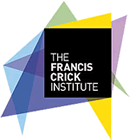Prof K H Vousden, Dr P Szlosarek
No more applications being accepted
Competition Funded PhD Project (Students Worldwide)
About the Project
Overview
Applications are invited for this three-year Crick Cancer Clinical Research Fellow position at the Francis Crick Institute (the Crick) funded by Cancer Research UK. This position provide the opportunity for the successful candidate to perform innovative biomedical discovery research into cancer for three years while following the Crick’s Clinical Research Fellows Programme leading to a PhD.
Project Description
Metabolic deregulation is a key hallmark of tumorigenesis. Based on the successful paradigm of asparagine deprivation in the treatment of leukemia, additional amino acids are under the translational spotlight. The Szlosarek Lab has focused on epigenetic loss of the arginine biosynthetic enzyme, argininosuccinate synthetase 1 (ASS1) which has been described in various chemorefractory cancers. While loss of ASS1 in the liver leads to urea cycle disorders, loss of ASS1 in cancer cells can support tumour cell growth by promoting diversion of the precursor aspartate for nucleotide synthesis and enhanced mTOR activity [1,2]. Loss of ASS1 is seen in several tumour types, including half of all malignant pleural mesothelioma, a rare but highly aggressive tumour [3].
Recently, pharmacological depletion of arginine with the enzyme pegylated arginine deiminase (ADI-PEG20) has proven effective in the first randomized cancer trial in patients with ASS1-deficient mesothelioma [3]. Initial studies to understand resistance mechanisms have revealed a role for re-expression of ASS1 following demethylation of the ASS1 promoter and alternate metabolic pathways, involving polyamines and delivery of argininosuccinate by stromal cells. Given the role of increased nucleotide synthesis in cancers with depleted ASS1 expression, further clinical studies have been initiated using ADI-PEG20 in combination with antifolates, with the goal of more efficiently eliminating the tumour cells and avoiding the development of resistance [4].
Nucleotide synthesis depends on the one-carbon cycle, which is supported by serine, a focus of research in the Vousden group [5,6]. Like arginine, serine is a non-essential amino acid that can be synthesised de novo or taken up from exogenous sources. However, cancers showing up-regulation of the endogenous serine synthesis pathway (SSP) tend to show a dependence on this route of serine production, regardless of the availability of exogenous serine [7]. Intriguingly, we detected a reciprocal relationship between tumoural ASS1 deficiency and increase in expression of the SSP enzymes PHGDH and PSAT1 following ADI-PEG20 treatment. Conversely, some cancers have lost the ability to synthesize serine, making them highly dependent on exogenous serine.
We propose to explore the relationship between ASS1 depletion and serine synthesis, and to test the potential synergy between arginine limitation and PHGDH inhibition (using small molecule inhibitors) or serine starvation. Our end goal is to translate this into the clinic.
The project will involve:
1. Assessing the activity and importance of the de novo SSP in ASS1 deficient mesothelioma cells following arginine depletion
2. Determine whether ASS1 deficient tumour cells that do not increase SSP enzyme expression become more sensitive to withdrawal of exogenous serine
3. Understand changes in metabolism in response to ASS1 inhibition and/or arginine depletion with SSP inhibition and/or serine depletion
4. Develop preclinical mouse models to test the efficacy of combination therapies limiting arginine and serine availability.
5. Aim to develop clinical trials to test promising combinations.
Funding Notes
Funding Notes
The position is fully funded for three years. The successful candidate will receive a salary commensurate with their current experience, paid on the Clinical Academic scale + location allowance.
Eligibility
Talented and motivated clinicians who are passionate about research, have a strong academic track record and hold full GMC registration or equivalent are invited to apply for this position. Applications from all medical and surgical specialities are welcomed.
This is a full-time research position with limited participation in clinical activities. PhD registration will be with the programme partner institution.
TO APPLY:
For information on how to apply: http://crick.ac.uk/about-us/jobs-and-study/clinical-fellows
References
1. Szlosarek. PNAS 2014
2. Rabinovich et al. Nature 2015
3. Szlosarek et al. JAMA Onc 2016
4. Allen et al. Cancer Res 2014
5. Maddocks et al. Mol Cell 2016
6. Maddocks et al. Nature 2013
7. Yang and Vousden, Nature Reviews Cancer 2016

 Continue with Facebook
Continue with Facebook

